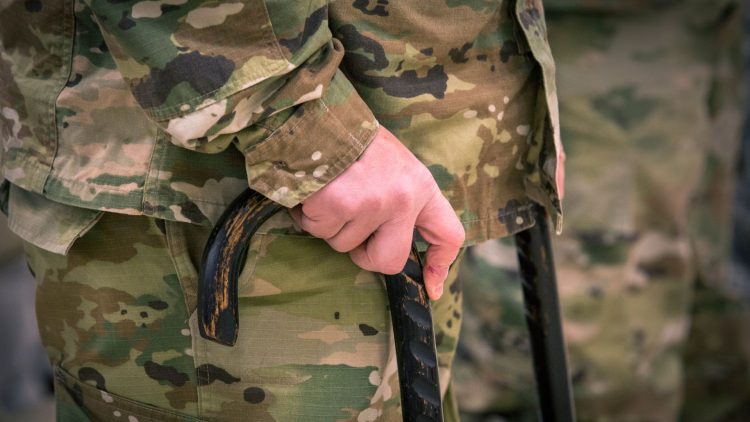The VA has been going all out lately to reach more veterans and make sure they get the care and support they need.
But if this funding issue doesn’t get sorted, that effort might stall, and a lot of veterans could miss out on vital services like mental health support, suicide prevention, and medical care coordination.
“It is crucial for Congress to act swiftly to avoid these disruptions,” Whaley stated.
How the VA Got Into This Financial Crisis
The current financial mess is pretty complicated.
A big part of the shortfall comes from the VA taking on more responsibilities with the PACT Act, which helps veterans exposed to toxic substances get the care and benefits they deserve. The problem? The sudden flood of claims from veterans has overwhelmed a system that was already stretched thin.
But Whaley has explained that while the increase in claims is definitely a factor, it’s not the whole story.
The VA has been dealing with management and resource issues for a long time.
Rushing the rollout of the PACT Act benefits, even with good intentions, put even more pressure on an already stressed system that was struggling with staffing shortages, rising costs for medications and prosthetics, and higher demand for community care.
On top of that, the VA’s financial planning didn’t account for the sudden surge in veterans seeking help under the PACT Act, leaving the department scrambling to keep up.
As Whaley pointed out, the issue isn’t just the number of claims coming in—it’s also how the VA manages its resources to meet that demand.
This crisis, while triggered by more claims, really highlights some deeper, long-standing problems with how the VA operates.
“The shortfall points to a deeper issue in how the VA is managed. It’s not just about the volume of claims but how the VA is allocating its resources to meet the growing demand,” Whaley explained.
Veterans Shouldn’t Suffer the Consequences
As the VA works through its financial struggles, one thing is crystal clear: veterans shouldn’t be the ones paying the price.
These men and women served our country with the promise of care and support in return.

A lot of veterans depend on disability payments to get by, and any disruption to those benefits could seriously push them into financial hardship.
For veterans with service-related disabilities, working may not be an option, making their benefits their only reliable income.
“While historically, there have been delays, veterans have not been left completely unpaid. However, the potential for delays in payments at this time could cause severe hardships,” Whaley explained.
And for those who’ve already sacrificed so much, that’s just not right.
More importantly, the retired Lt. Col. stressed how important it is for disabled veterans to have the assurance that their compensation won’t be interrupted. That “Veterans need clear communication from the VA and government about what is being done to protect their benefits.”
They shouldn’t be left wondering if—or when—they’ll get the payments they count on.
The Path Forward: What Needs to Happen
In the short term, Congress really needs to step up and approve the funding the VA is asking for.
A temporary fix, like the continuing resolution (CR), is crucial to avoid a full-blown crisis.
Without that extra money, the VA might have to cut back on services, which means longer wait times, fewer staff, and fewer resources for important programs like helping homeless veterans and providing caregiver support.
But this isn’t just about fixing the problem right now—we need long-term solutions, too.
As Whaley pointed out, the VA has to modernize its systems to be more efficient and better at managing resources. A more accurate way to predict demand would help the VA avoid these budget issues in the future.
Congress also needs to create safety nets to make sure veterans’ benefits are always paid on time, no matter what financial challenges come up.
“Congress could pass temporary stopgap funding to prevent a full-blown crisis while a longer-term solution is worked out,” Whaley stated.
Lastly, public awareness and advocacy are key to pushing for real change.
The Mission Roll Call CEO shared with us that when people truly understand the problems veterans are facing, it puts more pressure on lawmakers to act.
The American public has always supported veterans, whether it’s through donations, volunteering, or reaching out to their representatives.
For more veterans’ perspective, check out the powerful video below for insights on how veterans are impacted by the VA funding crisis.
By continuing to raise awareness, organizations like Mission Roll Call can make sure veterans’ needs are front and center in Washington.
UPDATE: Emergency Bill to Address the VA Shortfall
Just as I finished writing this piece, there was a new update regarding this matter, and according to The Hill, the House on Tuesday (September 17, 2024) passed an emergency bill aimed at plugging the $2.9 billion budget shortfall.
This bill, which passed with bipartisan support, is now headed to the Senate for swift approval. If enacted, the legislation would provide the additional funding, with the bulk ($2.3 billion) going to the VA for compensation and pensions and $597 million earmarked for readjustment benefits.
Known as the Veterans Benefits Continuity and Accountability Supplemental Appropriations Act, the bill also seeks to improve the VA’s budget forecasting to prevent future shortfalls.
It mandates detailed reporting from the VA secretary on budget estimates and requires the VA’s inspector general to review the circumstances that led to this financial crisis.
🚨 JUST PASSED 🚨 My bill to safeguard benefits for 7 million veterans just unanimously cleared the House. Now I’m calling on the Senate to act.
With a $2.883 billion VA budget shortfall threatening their benefits, this fix is critical. We’re demanding accountability—our… pic.twitter.com/dGp5DrQuk7
— Rep. Mike Garcia (@RepMikeGarcia) September 17, 2024
While the bill is expected to pass the Senate quickly, VA officials continue to warn that any delays beyond the September 20 deadline could put veterans at risk of not receiving their much-needed payments on time.
Final Thoughts
The VA’s $2.9 billion shortfall is a serious issue that could hit veterans hard across the country. These men and women shouldn’t have to deal with the fallout from budget problems, especially when they rely on their disability payments and benefits to make ends meet. Congress needs to step up and provide the funding needed to avoid cuts, delays, and the extra stress on veterans who have already sacrificed so much.
Veterans deserve a system that actually supports them. With the right changes, strong public support, and commitment from lawmakers, we can make sure veterans continue to get the care and benefits they’ve earned. But right now, time is running out, and the stakes are higher than ever.
—
Disclaimer: SOFREP utilizes AI for image generation and article research. Occasionally, it’s like handing a chimpanzee the keys to your liquor cabinet. It’s not always perfect and if a mistake is made, we own up to it full stop. In a world where information comes at us in tidal waves, it is an important tool that helps us sift through the brass for live rounds.











COMMENTS